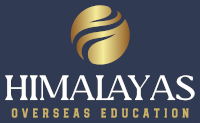At Himalayas Overseas Education, we assist students while they begin their journey to Canada. We aid in helping students select the right university and program. Moreover, we also help through the submission of the application process. In addition, our services include guidance on:
● admission requirement
● document preparation
● visa application aid
● scholarship assistance
Therefore, we try our best to ensure your application process goes smoothly!

